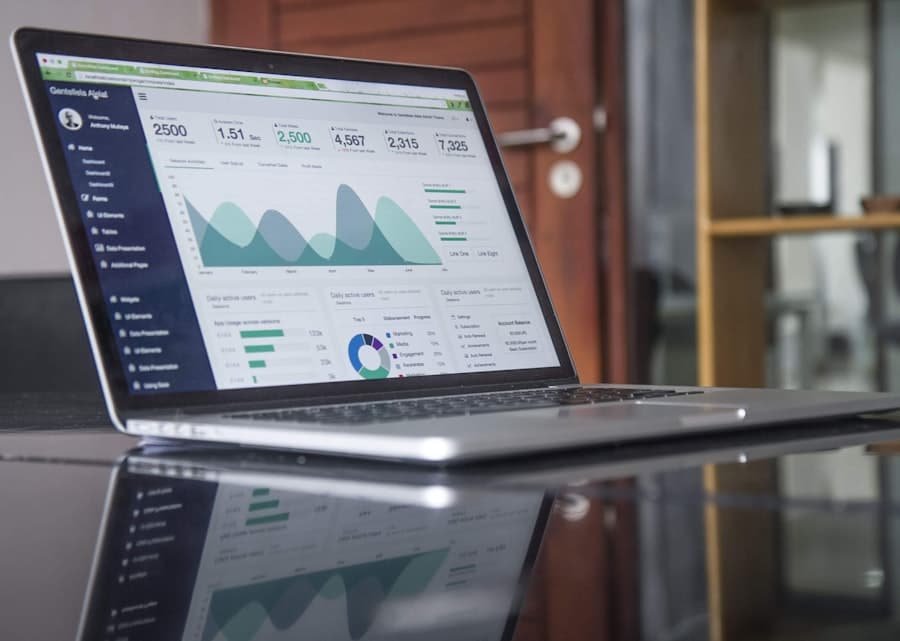In the digital age, social media has emerged as a powerful tool for communication, marketing, and brand engagement. As businesses increasingly rely on these platforms to connect with their audiences, the need for effective measurement and analysis of social media performance has become paramount. Social media analytics platforms have been developed to address this need, providing organisations with the tools necessary to track, measure, and interpret data from various social media channels.
These platforms enable businesses to gain insights into user behaviour, engagement levels, and overall campaign effectiveness, allowing for data-driven decision-making. The landscape of social media is vast and ever-evolving, with new platforms and features emerging regularly. This dynamic environment necessitates a robust approach to analytics, as companies must navigate the complexities of audience preferences and content performance.
Social media analytics platforms serve as a compass in this intricate terrain, offering valuable metrics that inform strategy and optimise marketing efforts. By harnessing the power of these tools, organisations can not only enhance their online presence but also foster deeper connections with their target audiences.
Summary
- Social media analytics platforms are tools that help businesses track, analyse and interpret data from their social media accounts to make informed decisions.
- Social media analytics are important for businesses as they provide insights into customer behaviour, preferences, and trends, helping to improve marketing strategies and customer engagement.
- Key features of social media analytics platforms include monitoring social media conversations, tracking engagement metrics, and providing competitive analysis.
- When choosing the right social media analytics platform, businesses should consider factors such as their specific goals, budget, and the platform’s ability to integrate with other tools.
- Using social media analytics platforms can benefit businesses by improving their social media marketing strategies, increasing brand awareness, and enhancing customer satisfaction.
The Importance of Social Media Analytics
Understanding the significance of social media analytics is crucial for any organisation aiming to thrive in today’s competitive marketplace. At its core, social media analytics provides insights that help businesses understand their audience better. By analysing user interactions, preferences, and behaviours, companies can tailor their content and marketing strategies to meet the specific needs of their target demographic.
This level of understanding is essential for creating relevant and engaging content that resonates with users, ultimately driving higher engagement rates and conversions. Moreover, social media analytics plays a vital role in measuring the effectiveness of marketing campaigns. By tracking key performance indicators (KPIs) such as reach, impressions, and engagement rates, businesses can assess the success of their initiatives in real-time.
This immediate feedback loop allows for agile adjustments to be made to campaigns, ensuring that resources are allocated efficiently and effectively. In an environment where consumer preferences can shift rapidly, the ability to pivot based on data insights is invaluable for maintaining a competitive edge.
Key Features of Social Media Analytics Platforms

Social media analytics platforms come equipped with a variety of features designed to provide comprehensive insights into social media performance. One of the most critical features is sentiment analysis, which enables organisations to gauge public perception of their brand or products. By analysing user-generated content such as comments, reviews, and mentions, businesses can identify positive or negative sentiments associated with their brand.
This information is crucial for managing brand reputation and addressing customer concerns proactively. Another essential feature is competitive analysis, which allows organisations to benchmark their performance against industry rivals. By examining competitors’ social media strategies, engagement levels, and audience interactions, businesses can identify gaps in their own approach and uncover opportunities for improvement.
Additionally, many platforms offer advanced reporting capabilities that allow users to create custom dashboards and visualisations. These tools facilitate the easy interpretation of complex data sets, enabling stakeholders to make informed decisions based on clear and concise information.
How to Choose the Right Social Media Analytics Platform
Selecting the appropriate social media analytics platform requires careful consideration of several factors. First and foremost, organisations should assess their specific needs and objectives. Different platforms offer varying features and capabilities; therefore, it is essential to identify which metrics are most relevant to the business’s goals.
For instance, a company focused on brand awareness may prioritise reach and impressions, while one aiming for customer engagement might focus on likes, shares, and comments. Budget is another critical factor in the decision-making process. Social media analytics platforms can vary significantly in cost, from free tools with limited functionality to comprehensive solutions that require substantial investment.
It is advisable for organisations to evaluate their budget constraints while also considering the potential return on investment (ROI) that a robust analytics platform can provide. Additionally, user-friendliness should not be overlooked; a platform that is intuitive and easy to navigate will facilitate quicker adoption by team members and enhance overall productivity.
Benefits of Using Social Media Analytics Platforms
The advantages of utilising social media analytics platforms are manifold and can significantly impact an organisation’s marketing strategy. One of the primary benefits is enhanced decision-making capabilities. With access to real-time data and insights, businesses can make informed choices about content creation, audience targeting, and campaign optimisation.
This data-driven approach reduces reliance on guesswork and intuition, leading to more effective marketing strategies. Furthermore, social media analytics platforms enable organisations to track the performance of individual posts or campaigns over time. This longitudinal analysis helps identify trends and patterns in user behaviour, allowing businesses to refine their strategies continually.
For example, if a particular type of content consistently generates high engagement rates, organisations can focus on producing similar content in the future. Additionally, these platforms often provide benchmarking tools that allow companies to compare their performance against industry standards or competitors, fostering a culture of continuous improvement.
Common Metrics and KPIs in Social Media Analytics

To effectively measure social media performance, organisations rely on a variety of metrics and key performance indicators (KPIs). Engagement metrics are among the most commonly used; these include likes, shares, comments, and retweets. High engagement levels typically indicate that content resonates well with the audience and encourages interaction.
Tracking these metrics over time can help businesses understand what types of content drive engagement and inform future content strategies. Another important category of metrics is reach and impressions. Reach refers to the total number of unique users who have seen a post or campaign, while impressions indicate how many times that content has been displayed, regardless of whether it was clicked or engaged with.
Monitoring these metrics helps organisations gauge the visibility of their content within their target audience. Additionally, conversion metrics—such as click-through rates (CTR) and conversion rates—are crucial for assessing the effectiveness of social media campaigns in driving desired actions, such as website visits or purchases.
Case Studies: Successful Implementation of Social Media Analytics Platforms
Numerous organisations have successfully leveraged social media analytics platforms to enhance their marketing efforts and achieve significant results. For instance, a well-known beverage company utilised a social media analytics tool to monitor brand sentiment during a major product launch. By analysing user feedback across various platforms in real-time, the company was able to identify potential issues early on and address them promptly through targeted communication strategies.
This proactive approach not only mitigated negative sentiment but also fostered positive engagement with consumers. Another compelling case study involves a fashion retailer that implemented a social media analytics platform to track customer interactions during a seasonal campaign. By analysing engagement metrics and user-generated content related to their campaign hashtag, the retailer gained valuable insights into customer preferences and trends.
This information allowed them to adjust their inventory and marketing strategies accordingly, resulting in a significant increase in sales during the campaign period. Such examples illustrate how data-driven insights can lead to tangible business outcomes when effectively integrated into marketing strategies.
Future Trends in Social Media Analytics Platforms
As technology continues to evolve at a rapid pace, so too do the capabilities of social media analytics platforms. One emerging trend is the integration of artificial intelligence (AI) and machine learning into analytics tools. These technologies enable platforms to analyse vast amounts of data more efficiently and accurately than ever before.
AI-driven insights can help organisations predict future trends based on historical data patterns, allowing for more proactive marketing strategies. Another trend gaining traction is the emphasis on visual analytics. As visual content becomes increasingly dominant on social media platforms, there is a growing need for tools that can analyse images and videos effectively.
Future analytics platforms are likely to incorporate advanced image recognition technologies that can assess visual content performance alongside traditional text-based metrics. This shift will provide organisations with a more holistic view of their social media presence and enable them to optimise their visual storytelling efforts. In conclusion, social media analytics platforms are indispensable tools for modern businesses seeking to navigate the complexities of digital marketing effectively.
By understanding their importance, key features, benefits, and future trends, organisations can harness these tools to drive meaningful engagement with their audiences while achieving their strategic objectives.
If you are interested in learning more about how businesses can add value through asset optimisation, I recommend checking out the article Adding Value Through Asset Optimisation. This article explores the importance of effectively managing and utilising assets to drive business success. Social media analytics platforms can also play a crucial role in helping businesses understand and optimise their online presence. By analysing data from social media platforms, businesses can gain valuable insights into customer behaviour and preferences, allowing them to make informed decisions and improve their overall performance.
FAQs
What are social media analytics platforms?
Social media analytics platforms are tools or software that are used to track, monitor, and analyze social media data. These platforms help businesses and individuals to understand their social media performance, audience engagement, and overall impact of their social media activities.
What are the key features of social media analytics platforms?
Key features of social media analytics platforms include monitoring social media mentions, tracking engagement metrics such as likes, shares, and comments, analyzing audience demographics and behaviour, measuring the effectiveness of social media campaigns, and providing insights for making data-driven decisions.
How do social media analytics platforms help businesses and individuals?
Social media analytics platforms help businesses and individuals by providing valuable insights into their social media performance, helping them to understand their audience better, identifying trends and patterns, measuring the impact of their social media activities, and making informed decisions to improve their social media strategy.
What are some popular social media analytics platforms?
Some popular social media analytics platforms include Hootsuite, Sprout Social, Buffer, Google Analytics, Brandwatch, Talkwalker, and Sprinklr. These platforms offer a range of features and capabilities to meet the diverse needs of businesses and individuals.
How can social media analytics platforms be used to improve social media strategy?
Social media analytics platforms can be used to improve social media strategy by providing insights into audience preferences, content performance, and overall social media impact. By analysing the data provided by these platforms, businesses and individuals can make informed decisions to optimize their social media content and campaigns.
 Using diversity and inclusion to provide better service (PDF)
Using diversity and inclusion to provide better service (PDF) 